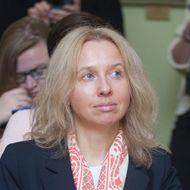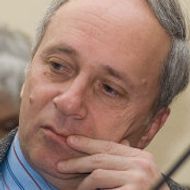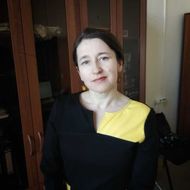- A
- A
- A
- ABC
- ABC
- ABC
- А
- А
- А
- А
- А
105066 Moscow, Staraya Basmannaya 21/4, building 3
Phone: +7 (495) 772 95 90 *22858
The HSE School of History was established in 2015 on the basis of the HSE faculty of history. The School's staff brings together leading scientists in various fields of historical knowledge who are widely known and respected in Russia and the international academic community. The School’s instructors are leading historians are authors of numerous books and articles, regular participants in major international scientific forums and research projects, and are also known as popularizers of historical knowledge. The HSE School of History actively cooperates with leading foreign universities and research centers, and organizes international scientific conferences, symposia, and colloquiums.
Strasbourg: Presses universitaires de Strasbourg, 2023.
Misiak M., Butovskaya M., Sorokowski P.
Food Quality and Preference. 2024. Vol. 114.
In bk.: Picturing Russian Empire. Oxford: Oxford University Press, 2024. Ch. 6. P. 66-73.
Kolesnik A., Rusanov A.
Working Papers of Humanities. WP. Издательский дом НИУ ВШЭ, 2021. No. 205.
Strategic Academic Units
Russia and the West:
similarities and differences of historic paths
Leaders — Budnitskii Oleg Vitalyevich, NRU HSE, Faculty of Humanities, School of History, professor, born in 1954, h-index — 2; Filatova Irina Ivanovna, NRU HSE, Faculty of Humanities, School of History, professor, born in 1947, h-index — 2.
The project is aimed at comparative study of Russian history in european context. Key expected outcome: a ratio of local and pan-european elements in Russian history from the beginnigs till our times will be determined.
Key partners: École des hautes études en sciences sociales (Paris), United States Holocaust Memorial Museum (Washington), Max Weber Stiftung (Deutsches Historisches Institut Moskau), Westfälische Wilhelms-Universität (Münster), Ludwig-Maximilians-Universität (München), Uniwersytet Warszawski, Eberhard Karls Universität (Tübingen) etc.
Beneficiaries: educational, scientific, cultural institutions, governmental agencies.
Crises and peaks of Eurasian history, 4th – 20th centuries
Leader — Khlevnyuk Oleg Vitalyevich NRU HSE, Faculty of Humanities, School of History, professor, The International Centre for the History and Sociology of World War II and Its Consequences, leading research fellow, born in 1959, h-index — 2.
The project is aimed at the study of key factors determining both dynamic and conservative elements of historical process on the Eurasian continent.
Basic research directions:
- dynamics of peoples and cultures on the Eurasian continent from the Middle Ages to the Postmodernity
- Byzantine Empire, Caucasus and Russia: economic, social and cultural interaction
- modernisation cycles in Eastern Europe in the 18th – 20th centuries: a comparative study
- reception and adaptation of political, social, legal and philosophical theories and conceptions on the Eurasian continent from the 16th to the 20th century
Expected outcome: exposure of main factors determining the dynamics of historic process on the Eurasian contitnent for the first time viewed as an integral historic phenomenon.
Beneficiaries: educational, scientific, cultural institutions, governmental agencies.
- About
- About
- Key Figures & Facts
- Faculties & Departments
- International Partnerships
- Faculty & Staff
- HSE Buildings
- Public Enquiries
- Studies
- Admissions
- Programme Catalogue
- Undergraduate
- Graduate
- Exchange Programmes
- Summer University
- Summer Schools
- Semester in Moscow
- Business Internship
-
https://elearning.hse.ru/en/mooc/
Massive Open Online Courses
-
https://www.hse.ru/en/visual/
HSE Site for the Visually Impaired
-
http://5top100.com/
Russian Academic Excellence Project 5-100
- © HSE University 1993–2024 Contacts Copyright Privacy Policy Site Map
- Edit



